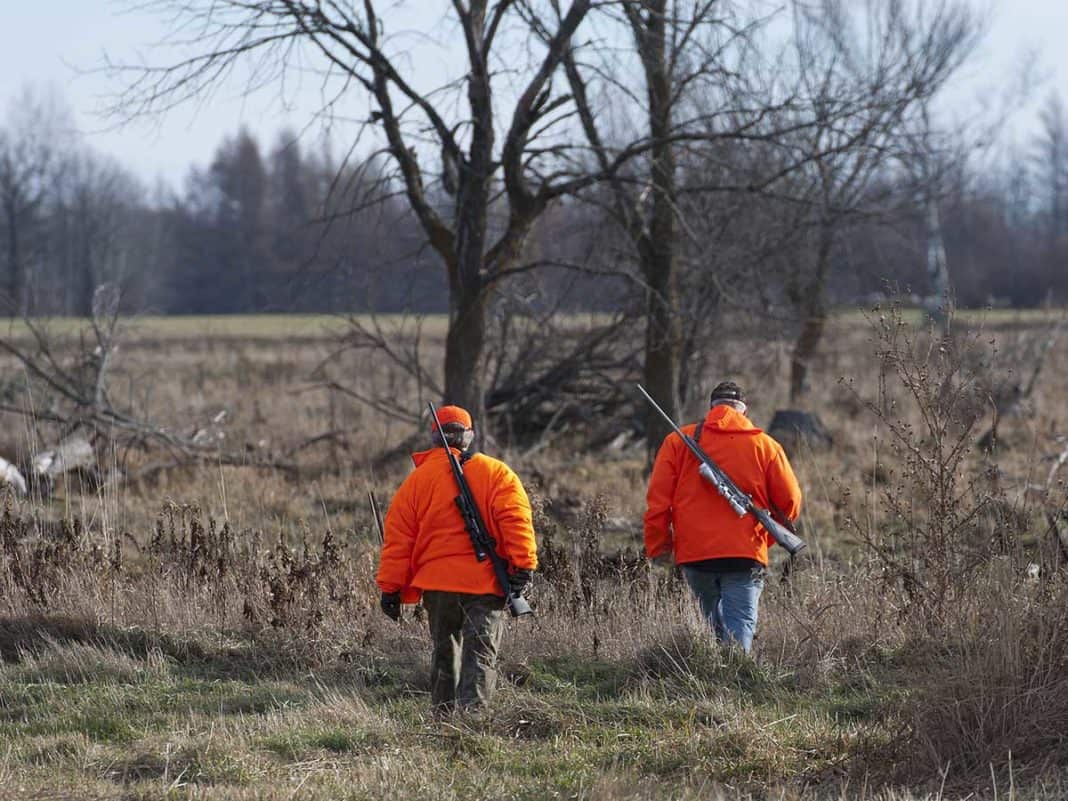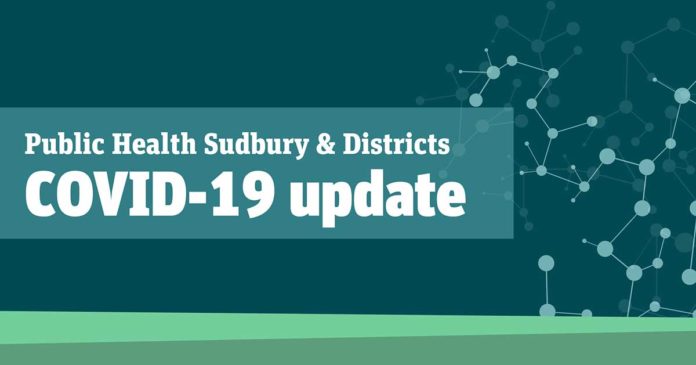MANITOULIN – While things appear to be getting better in terms of the COVID-19 pandemic numbers, this year’s annual Manitoulin Island deer rifle hunt next week is again going to be a little different, as representatives of Public Health Sudbury and Districts (PHSD) and the Ministry of Northern Development, Mines, Natural Resources and Forestry (NDMNRF) are stressing that hunters have to take precautions to stay safe and protected.
And as for the actual deer hunt itself, Wayne Selinger, biologist with the MNDMNRF office in Sudbury explained, “the winter of 2019 was severe and continues to be a factor in the status of Manitoulin deer. Deer numbers were expected to increase given the mild winter we experienced in 2020 and early 2021 but, based on last year’s hunt, the deer population has been slow to recover. Because of this, tag numbers were not increased for this year’s fall hunt. The results of 2021, together with the severity of this coming winter, will inform tag allocations for 2022.”
Morgan Kerekes, acting media and issues advisor with the NDMNRF listed some things hunters should do in preparing for the season, “It’s up to hunters to know the rules and regulations. Check out the 2021-2022 Hunting Regulations Summary available at ontario.ca/hunting before heading out. Make sure you have your outdoors card, licence summary, any required tags or validation certificates for the species you are hunting and proof of firearms accreditation if you are hunting with a gun.”
“Contact your local NDMNRF enforcement office if you have any questions pertaining to the regulations,” said Ms. Kerekes. “And let someone know where you will be hunting and when you plan on returning. Be prepared for all weather conditions while in the field. And plan for and have all navigation aids with you while in the field to avoid getting lost.”
Ms. Kerekes said, “one of the most common and preventable hunting violations that NDMNRF deals with includes the safety feature that it is illegal to shoot from, down or across a public road while hunting. There are no exceptions. In many parts of Ontario, it is illegal to even have a loaded firearm in the road right of way. Check what rules apply in the part of the province where you are hunting.”
Hunters should not carry a loaded firearm in a vehicle. “Generally, in Ontario you must transport your gun unloaded while it is in a vehicle, motorboat or aircraft. Vehicles include all-terrain vehicles and snowmobiles. You must unload and encase firearms in your possession during the period from a half hour after sunset to a half hour before sunrise. In Ontario you can generally only hunt from half an hour before sunrise to half an hour after sunset. It is a good idea to check sunrise and sunset times prior to heading out so you can plan accordingly. Hunters must wear hunter orange.”
Another preventable violation to keep in mind, said Ms. Kerekes is, “always remember, when you are hunting you cannot carry another person’s tag. Please note that you must also have on your person any applicable validation certificate and tags. You must also carry proof of having the credentials to hunt with a gun.”
“Failing to properly tag a harvested animal, (for example, not notching the tag or not attaching the tag properly when it is required to be attached) is a violation,” said Ms. Kerekes. “Each tag has detailed instructions on its use, so follow the instructions.”
Trespassing is not permitted. “You must have written permission to hunt on privately owned lands. If you have wounded an animal and it runs onto private property, you usually must secure permissions prior to following the animal onto the private property,” said Ms. Kerekes.
Hunters are reminded to handle firearms with care and attention at all times. You should never shoot unless a hunter is absolutely sure of their target and what lies beyond it. All hunters must wear solid hunter orange clothing (a minimum of 400 square inches or 2,580 square centimetres above the waist) and a hunter orange head cover during gun seasons for deer.
While the deer hunt will take place, “certainly over the last few weeks we have seen an alarming number of confirmed cases of COVID-19 in our district and there are things that hunters need to do to protect their families and communities,” said Kayla Kainulainen, public health nurse with PHSD. She pointed out social gatherings need to be kept to a maximum of 25 people indoors and 100 outdoors. “By keeping the numbers small in camps and lodges, and making sure everyone has been vaccinated, it will help keep everyone protected,” said Ms. Kainulainen.
“We recommend if in a camp, to keep a contact log of everyone so if we have to do an investigation in an occurrence of COVID-19 we can track everyone down,” said Ms. Kainulainen. “Everyone should continue to continue protocols like wearing a mask, physical distancing and washing and often sanitizing areas used in a camp.”
Ms. Kainulainen pointed out, “there were concerns raised last year with hunters travelling to Manitoulin Island for the deer hunt. Everyone should be aware that COVID-19 is still circulating in Ontario at different levels. The Greater Sudbury area is a current hot spot in Ontario. We recommend those who are not feeling well to stay at home.”
In fact, Greater Sudbury has additional mandatory measures re-instated today, November 10.
Mr. Kerekes said the NDMNRF is also recommending that with COVID-19 precautions, “to take these everyday steps to reduce exposure to the COVID-19 virus and protect your health: Wash your hands often with soap and water or alcohol-based hand sanitizer, sneeze and cough into your sleeve, avoid touching your eyes, nose or mouth, avoid contact with people who are sick, and stay home and self-isolate if you are sick (not related to getting a COVID-19 vaccine in the last 48 hours), talk with a doctor if necessary.”
“Everyone should practice physical distancing to reduce their exposure to other people. This means you should avoid crowed indoors spaces as much as possible and stay at least two metres away from anyone you do not live with,” said Ms. Kerekes.




